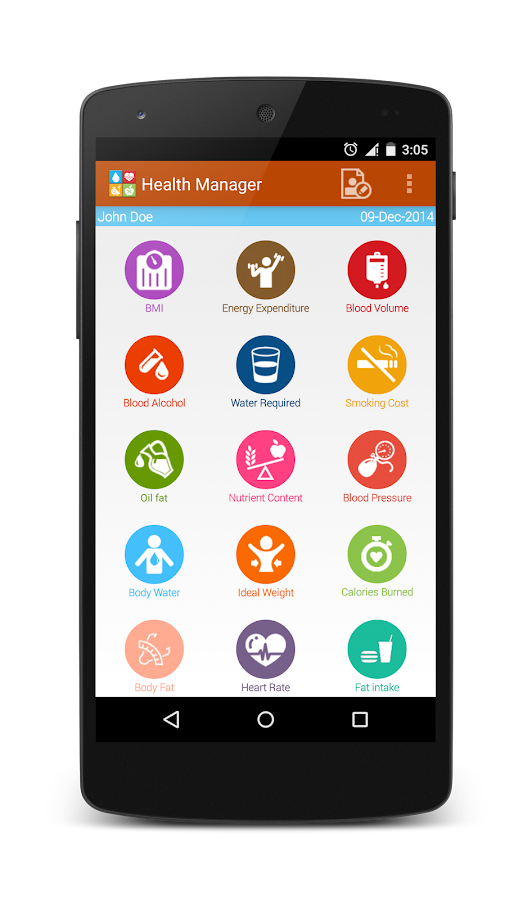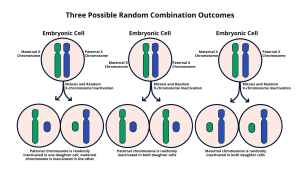Health Management Apps: Revolutionizing Patient Care
Health management apps have emerged as essential tools in today’s digital age, providing personalized support for users navigating their wellness journeys. By utilizing sophisticated healthcare algorithms for patients, these apps offer tailored experiences that can significantly enhance medication adherence and lifestyle choices. Designed for various needs, such as cancer patient support, they leverage reinforcement learning in healthcare to adapt recommendations based on individual behavior and circumstances. With features like just-in-time adaptive interventions, these applications ensure that users receive relevant assistance precisely when they need it most. As we explore the potential of these innovative health management apps, it’s clear they represent a progressive step towards achieving better health outcomes and improved patient empowerment.
In recent years, applications focused on health supervision and wellness assistance have gained immense popularity among users seeking to optimize their health management strategies. These digital solutions strive to deliver customized experiences by employing algorithms that adapt to individual health circumstances and preferences. Particularly beneficial for individuals recovering from serious conditions, the applications often include personalized health platforms designed to aid cancer patients and others with specific healthcare needs. By integrating techniques like reinforcement learning, these tools respond dynamically, providing guidance when it’s most effective, like during critical recovery phases. As technological advancements merge with healthcare, we are witnessing the evolution of intuitive personal health assistants that might one day redefine our approach to wellness.
The Role of Health Management Apps in Personalized Care
Health management apps have revolutionized the way patients manage their wellness, particularly those grappling with chronic conditions such as cancer. These applications leverage state-of-the-art algorithms and machine learning technologies to provide personalized care that adapts to the unique needs of each individual. By utilizing real-time data, these apps can optimize medication adherence and daily health routines, transforming the lives of users by empowering them to take control of their health like never before. The ability of these applications to utilize reinforcement learning allows them to adjust their suggestions and reminders based on user behavior, making them not only user-friendly but also incredibly effective.
Furthermore, personalized health apps pave the way for targeted interventions that are tailored specifically to the user’s current situation, ultimately enhancing their recovery experience. This is particularly vital for cancer patients who require constant monitoring and support throughout their treatment journey. By harnessing just-in-time adaptive intervention strategies, health management apps create a supportive environment that encourages users to follow their drug regimens and manage their overall well-being. This represents a significant shift in healthcare, moving from traditional, generalized approaches to a more nuanced and customized care model.
Enhancing Support for Cancer Patients through Technology
Cancer patients face numerous challenges during their treatment, especially when it comes to adhering to complex medication regimens. Many individuals may find it difficult to stay on track due to the debilitating side effects of their treatments. Hence, the advent of apps specifically designed for cancer patient support is a game changer. These programs often include features that cast a wide net of assistance, from medication reminders to emotional support through features such as social networking and gamification. By utilizing healthcare algorithms tailored to the unique needs of cancer patients, these apps can significantly improve adherence rates and overall patient outcomes.
Moreover, the relationship between patients and their caregivers is crucial during this fragile period. Applications that facilitate communication and resource sharing between patients and caregivers can enhance emotional support lines, making a tangible difference in recovery rates. By employing advanced reinforcement learning techniques, these apps can learn how best to engage both patients and caregivers, ensuring that motivation and support are provided at pivotal moments. The collaboration among software engineers, healthcare professionals, and researchers leads to practical and impactful solutions that greatly improve a cancer patient’s journey through treatment.
Reinforcement Learning: A New Frontier in Healthcare
Reinforcement learning in healthcare represents a breakthrough approach that changes how patients interact with digital health solutions. By allowing algorithms to learn from each user’s behavior, healthcare applications can be tailored to deliver the most effective interventions at the right time. For instance, a healthcare app can analyze a patient’s past responses to medication reminders and optimize future notifications to align with when the patient is most likely to adhere to their regimen. This technology ensures that support is not only personalized but also dynamic, adapting continuously to the patient’s evolving circumstances.
One of the most exciting applications of reinforcement learning is seen in projects aimed at chronic disease management. For instance, in the development of cancer patient support apps, these algorithms inform not just when to send reminders, but also which types of messages are most motivating for the user. This capability aligns perfectly with just-in-time adaptive intervention frameworks that are increasingly recognized as essential for effective health management. As we see more apps integrate these sophisticated algorithms, the potential for enhanced patient engagement and improved health outcomes becomes ever more promising.
Just-In-Time Adaptive Intervention: A Revolution in Patient Support
Just-in-time adaptive intervention (JITA) is a concept that epitomizes the future of health management through mobile technology. By using real-time data to provide interventions at key moments, apps can significantly enhance support for patients facing various health challenges, including those related to cancer care. JITA strategies are built on the premise of being responsive; the app assesses the patient’s immediate needs and preferences, delivering tailored support precisely when it’s most impactful.
The implications of JITA extend beyond mere alerts and notifications. With advancements in data analytics and machine learning, patients can receive tailored content that resonates with their current emotional and physical states. For example, if a patient demonstrates signs of low motivation, the app can automatically adjust its messaging to offer encouragement or engage them in a fun, interactive way. This not only helps patients feel supported but also promotes adherence to their care plans, making JITA an invaluable approach in modern healthcare management.
Integrating Social Support in Health Management Apps
The integration of social support features within health management apps provides users with a vital resource in their wellness journeys. The support of family and friends can significantly influence a patient’s ability to adhere to treatment protocols, yet often this support is underutilized. With apps that foster social interactions, patients are encouraged to connect with loved ones, share experiences, and access emotional backing when they need it most. This aspect of health apps not only helps reduce feelings of isolation often experienced during chronic illness but also promotes collaborative strategies for managing care.
Additionally, social features can include collaborative tasks such as shared reminders, motivational challenges, and group discussions among caregivers and patients. By bringing together communities—whether they are fellow cancer patients or caregivers—these apps create networks of understanding and encouragement. The social dimensions of health management apps thus serve as a powerful complement to personalized interventions, creating an all-encompassing support system that addresses both the physical and emotional needs of patients.
The Future of Healthcare Algorithms for Patients
The future of healthcare algorithms holds incredible promise for patient management and overall health improvement. As technology continues to evolve, we can expect these algorithms to become increasingly sophisticated, capable of analyzing vast arrays of data in real-time to deliver individualized care solutions. As healthcare systems shift towards value-based care, these algorithms will play a crucial role in enhancing patient experiences and healthcare outcomes, particularly for chronic disease management.
Moreover, the implementation of healthcare algorithms is paving the way for personalized health apps that will revolutionize patient care. These advancements are not limited to physical conditions but are expanding into mental health and wellness, providing comprehensive support frameworks. As we venture into this new era characterized by data-driven insights and personalized health management solutions, the potential for improved quality of life for patients is boundless.
Challenges Facing Health Management Apps and Future Directions
Despite the remarkable advancements in health management apps, several challenges persist that can hinder their effectiveness and widespread adoption. One significant challenge is the need for robust data privacy and security measures. Users must feel confident that their personal health information is safeguarded against breaches. Additionally, as these apps rely on AI and algorithms, there must be transparency in how data is used, particularly in terms of algorithmic bias that can stem from insufficient training datasets.
Looking forward, addressing these challenges will be crucial for the future success of healthcare apps. Stakeholders must collaborate to develop guidelines and standards that prioritize patient safety while promoting innovation in the space. As more users engage with health management apps, the feedback collected can further refine algorithms, leading to an ecosystem where technology truly complements patient care. This commitment will ensure that health management apps continue to evolve to meet the dynamic needs of users, ultimately driving improved health outcomes.
The Intersection of Technology and Patient Care
The intersection of technology and patient care is becoming increasingly essential in today’s healthcare landscape. With the rise of personalized health apps that utilize sophisticated algorithms, patients can now access tools that support their unique needs and preferences. This intersection not only streamlines healthcare delivery but also enhances the overall patient experience by making healthcare more accessible and engaging. Patients can track their health metrics, receive timely reminders, and gain insights that empower them to actively participate in their own care.
Furthermore, technology’s role in patient care is constantly evolving, opening doors to innovative solutions that cater to various health challenges. For instance, the development of reinforcement learning algorithms enhances the adaptability of health apps, allowing them to improve on-the-fly based on user interactions. As we embrace this transformation, it’s clear that technology will continue to be a pivotal force in shaping the future of healthcare, fostering patient empowerment, and delivering tailored, effective interventions.
Digital Health Coaching: The Future of Personalized Support
As healthcare systems continue to explore cost-effective strategies, digital health coaching emerges as a compelling solution for personalized support. These innovations position health management apps not just as tools, but as comprehensive coaches that guide patients through their wellness journeys. By integrating AI and machine learning, these apps are capable of analyzing individual user patterns and delivering tailored suggestions that truly resonate with their health goals, thereby enhancing patient engagement.
Moreover, the potential for digital health coaching extends far beyond traditional health and wellness paradigms. With ongoing improvements in technology, future iterations of these apps are likely to engage patients in new ways, providing immersive experiences that support lifestyle changes and foster greater adherence to treatment plans. Ultimately, as digital health coaching continues to evolve, it promises to significantly impact the quality and efficacy of patient care, paving the way for a healthier future.
Frequently Asked Questions
What are health management apps and how do they assist users?
Health management apps are digital tools designed to help users manage their health and wellness. These apps often utilize artificial intelligence and algorithms to provide personalized health tracking, medication reminders, and tailored support. By using data analytics, health management apps assist users in adhering to treatment plans and making healthier lifestyle choices.
How do personalized health apps improve patient outcomes?
Personalized health apps leverage data and algorithms to tailor interventions based on individual needs, thereby enhancing patient outcomes. By customizing reminders, motivational messages, and support based on user interactions, these apps facilitate better adherence to medication regimens and encourage healthier behaviors, especially for chronic conditions.
What role do cancer patient support apps play in treatment adherence?
Cancer patient support apps help improve treatment adherence by providing tailored reminders and emotional support to patients undergoing complex therapies. These apps utilize healthcare algorithms to send motivational prompts and connect users with caregivers, enhancing communication and collaboration during the challenging recovery phase.
What is reinforcement learning in healthcare, and how is it applied in health management apps?
Reinforcement learning in healthcare is a type of artificial intelligence where algorithms learn from patient interactions to optimize support and engagement. Health management apps apply this concept by continuously adapting their strategies, ensuring that interventions are timely and relevant, which ultimately helps users manage their health more effectively.
What is just-in-time adaptive intervention in health management apps?
Just-in-time adaptive intervention refers to the ability of health management apps to deliver support precisely when it is needed based on real-time data. This approach ensures that users receive the right messages or reminders at critical moments, promoting adherence to health protocols and fostering better health behavior.
How do healthcare algorithms for patients enhance the effectiveness of health management apps?
Healthcare algorithms for patients enhance the effectiveness of health management apps by providing data-driven insights that shape user interactions. These algorithms analyze user data to create personalized experiences, improving patient engagement and outcomes by ensuring that the support offered is relevant and timely.
What features should I look for in a health management app for chronic disease management?
When selecting a health management app for chronic disease management, look for features such as personalized health tracking, medication reminders, integration with wearable devices, real-time feedback, and support for caregiver communication. Additionally, ensure that the app employs adaptive algorithms for continuous improvement in user experience.
Can health management apps support users in reducing substance use?
Yes, health management apps can effectively support users in reducing substance use, as seen with programs like MiWaves, which use reinforcement learning to adaptively guide users based on their interactions. These apps provide tailored support and motivational interventions to help users manage their behavior and achieve healthier outcomes.
Are health management apps effective for managing post-surgery recovery?
Health management apps can be highly effective in managing post-surgery recovery by providing patients with tailored reminders, tracking progress, and offering support in adherence to medication regimens. With features designed to enhance communication between patients and caregivers, these apps play a vital role in ensuring a smoother recovery process.
How can health management apps foster better communication between patients and caregivers?
Health management apps foster better communication between patients and caregivers by enabling real-time sharing of data, reminders, and progress updates. Features such as shared notifications and collaborative tools encourage active involvement from both parties, ultimately leading to improved health management and support during recovery.
| Key Point | Description |
|---|---|
| Personal Healthcare Coaches | Health management apps act as personal healthcare coaches, offering tailored support for patients, particularly those with serious conditions like cancer. |
| Reinforcement Learning Algorithms | Apps developed using reinforcement learning algorithms provide personalized interventions based on real-time data, adapting to users’ needs. |
| Just-in-Time Adaptive Interventions | The apps deliver support when it’s most required, adjusting interactions based on evolving patient circumstances. |
| Collaborative Care | The involvement of caregivers is essential in managing health, as many patients rely on family for medication adherence and support. |
| Real-time Personalization | Through continuous learning, the apps deliver motivation and reminders that are more relevant to the user, enhancing adherence to care. |
| Broader Applications | These health management apps are being developed not only for cancer patients but also for issues like cannabis use and oral health, expanding their scope. |
Summary
Health management apps are transforming patient care by acting as personal healthcare coaches that offer timely, customized support for individuals facing significant health challenges. These innovations utilize cutting-edge algorithms to adapt to users’ changing needs, ensuring that interventions are both relevant and effective. The collaborative nature of these apps also reinforces the importance of caregiver involvement, highlighting a holistic approach to health management that enhances patient outcomes. As these technologies continue to evolve, the potential for health management apps in improving medication adherence and overall health becomes increasingly promising.



